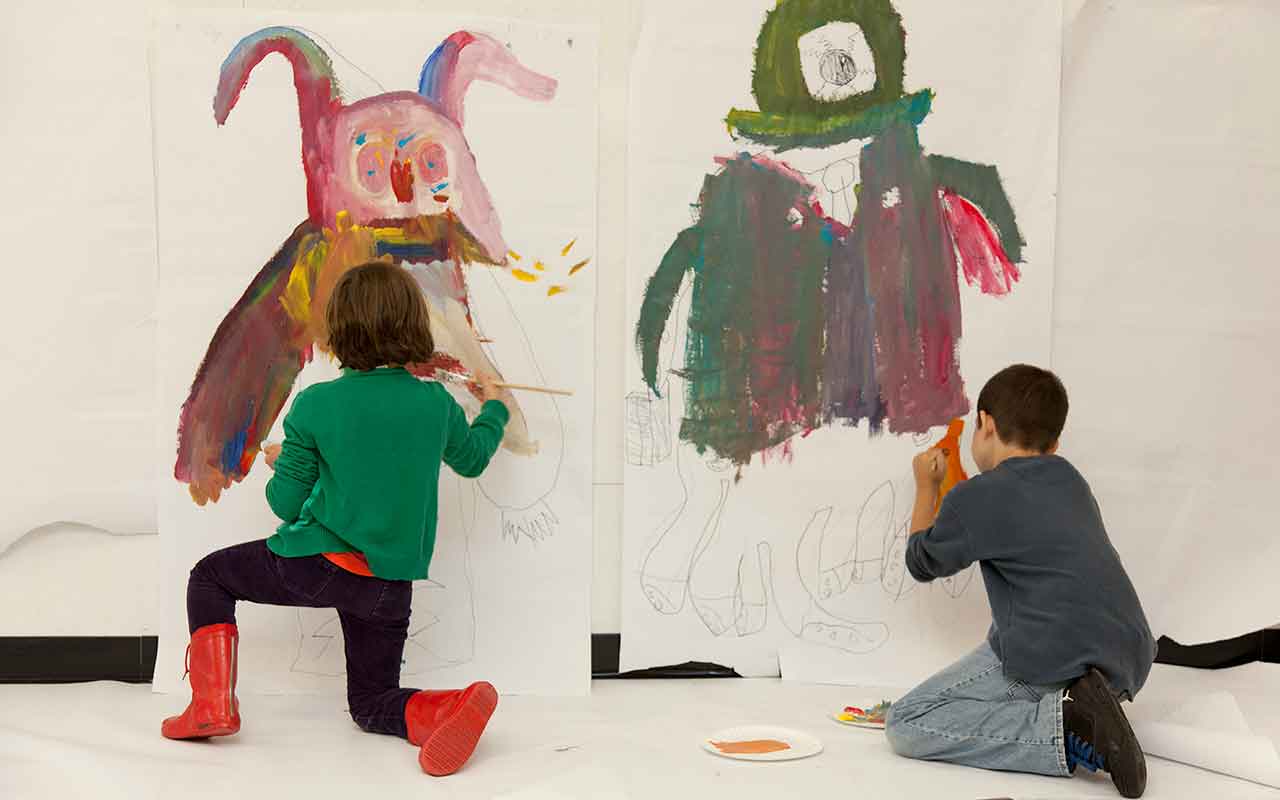By Catherine Davis Hayes, coordinator for the RISD Young Artist Program
For children, creativity is as natural as breathing, until they are cultured out of it. Think about it: not many 4- or 5-year-olds will tell you they don’t know how to draw, or that they can’t dance or sing. Children are born explorers of their environment through movement, sound, interaction, and the manipulation of objects, ideas and circumstances. Sadly, creative expression in childhood is often lumped in with the grossly undervalued realm of play and is considered frivolous. As children grow, opportunities for creative self-expression become even more limited to play or carefully scheduled and managed blocks of time, when actually it is critical in so many developmental domains.
These opportunities for free exploration without rules or constraints are when innovation and the unexpected occur, leading to discovery moments that fuel the desire to learn by fostering curiosity.
Allowing children to explore the world through creative self-expression fosters essential skills that we might not consider right away. On the short list are communication, expressing emotions, developing opinions, problem solving, refining gross and fine motor skills — even using numeracy and other math concepts in real-world and age-appropriate applications. These opportunities for free exploration without rules or constraints are when innovation and the unexpected occur, leading to discovery moments that fuel the desire to learn by fostering curiosity.
Every school’s mission statement contains a phrase regarding the development of students as lifelong learners, and fostering curiosity and creativity is essential to that goal. Ironically, both our educational system and our culture at large talk the talk but do little to walk the walk. We need to remember that whether a child is creatively choosing their wardrobe for the day, painting their masterpiece of the moment, constructing a fort out of sofa cushions, or commenting on the weather through interpretive dance, they are ultimately developing their unique personalities that will determine how they navigate the world around them as they grow. We need to let them. Providing opportunities for instructional skill-building activities in the arts is important for sure, but also allow for that free-form creative expression … even if as grown-ups we do not quite understand.

